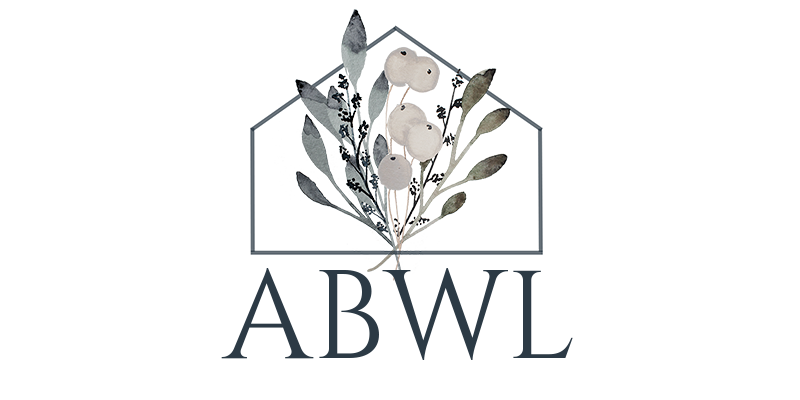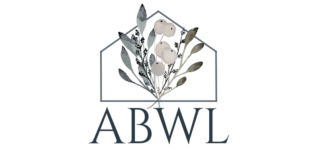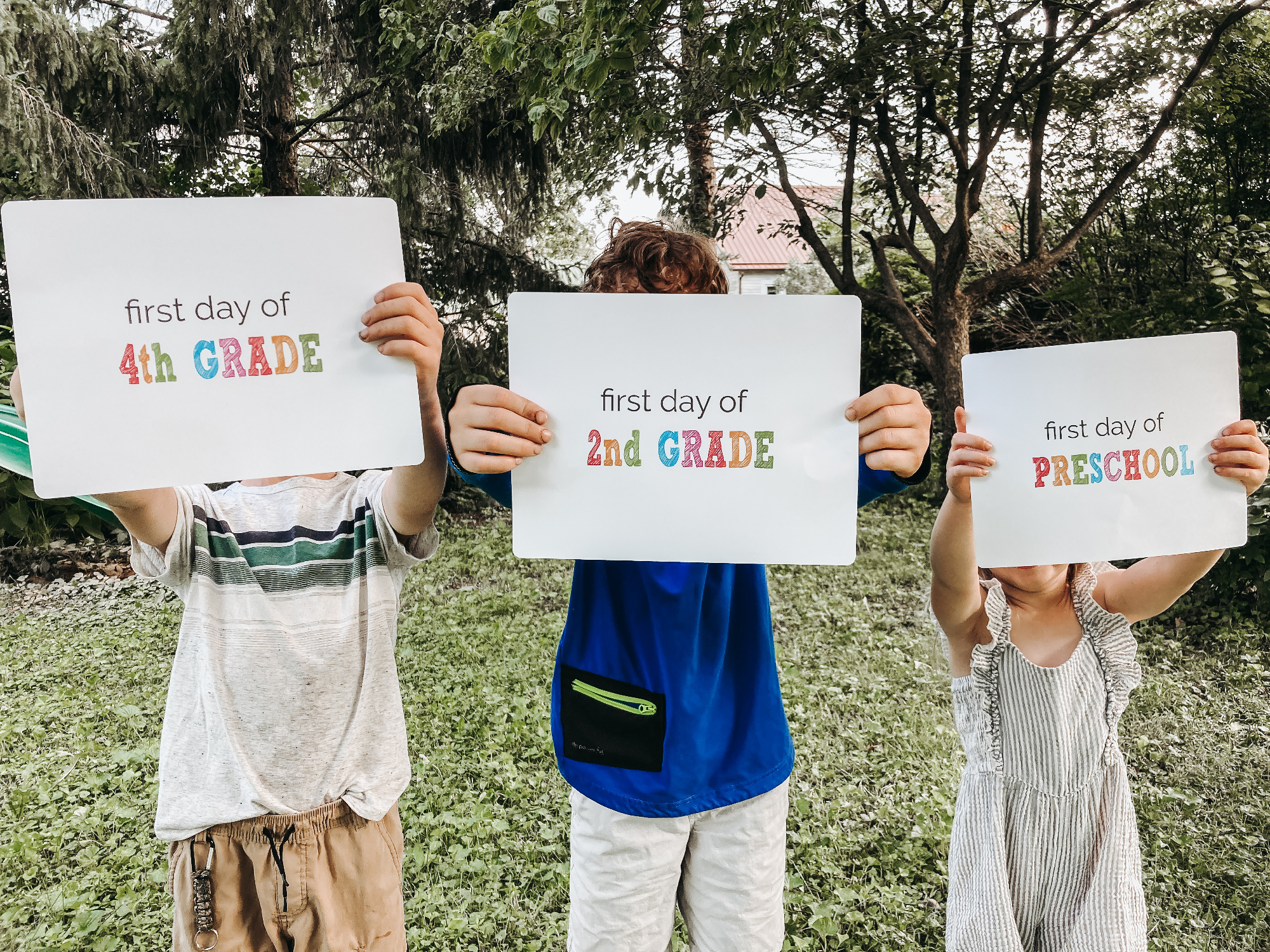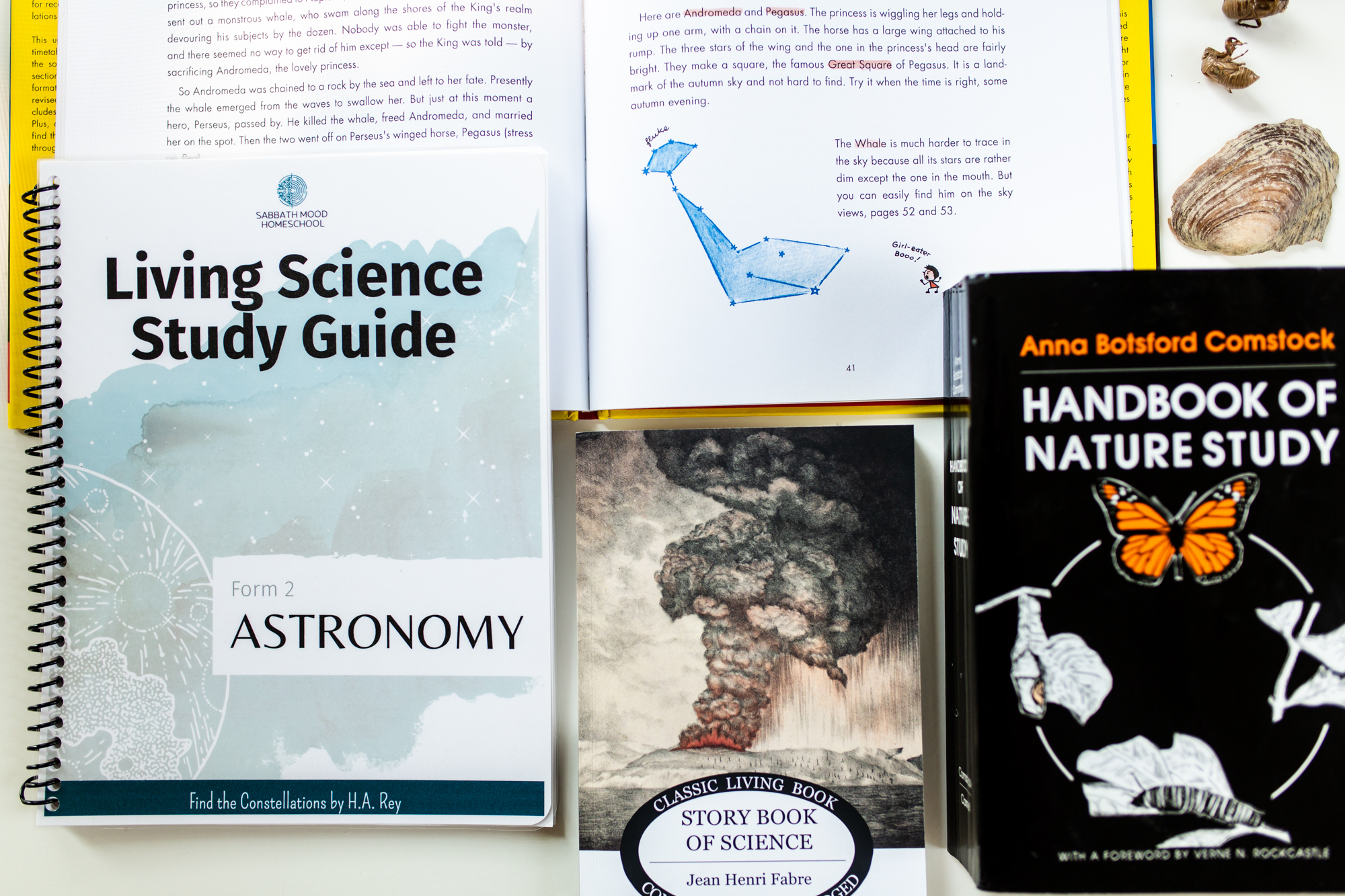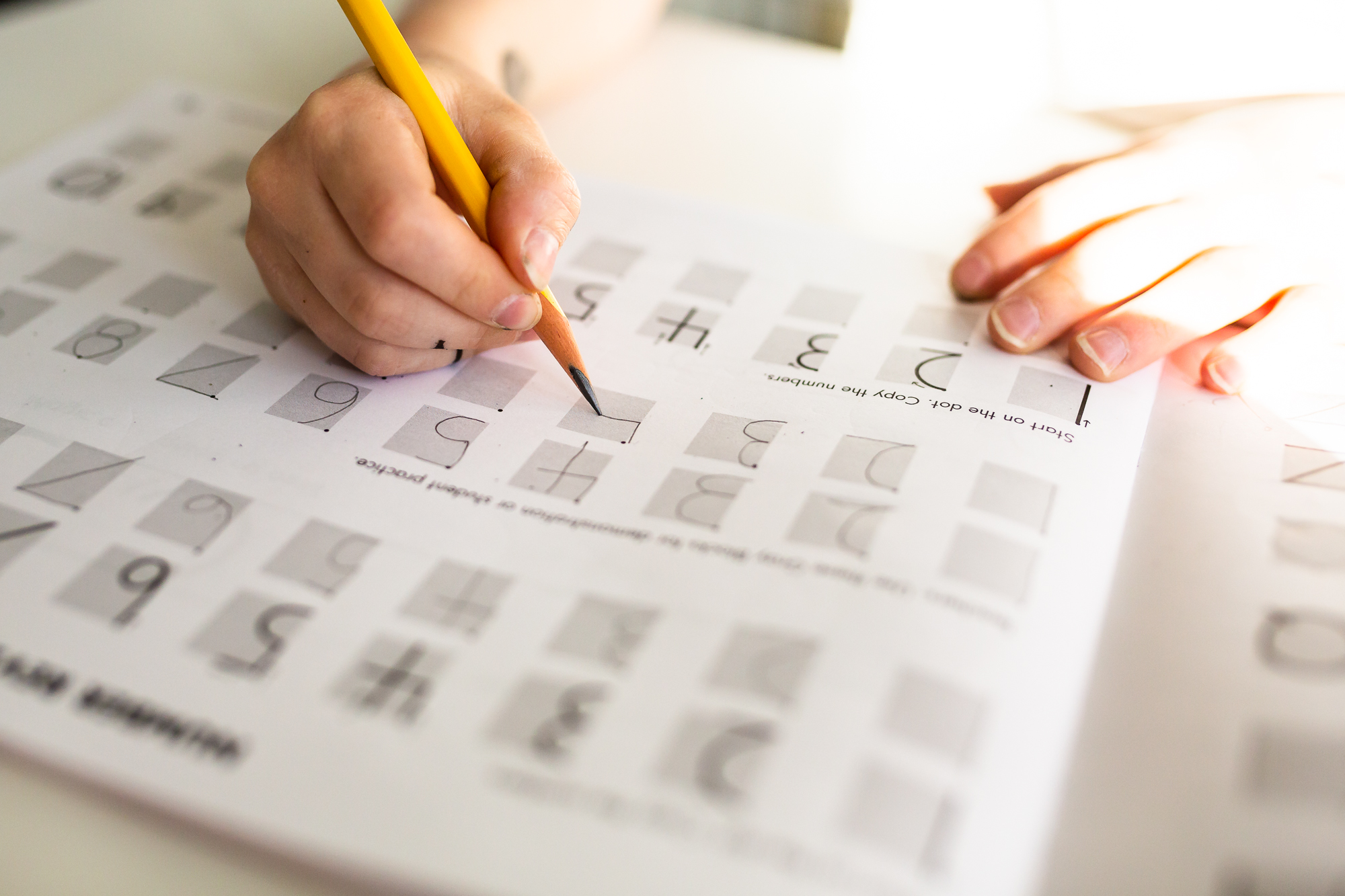let's be social!
It’s exam week over here, which is exciting in our home! This is only our second exam week ever since going “whole hog” on the Charlotte Mason method, but we started today and I’m very excited for the week. And because it’s been on my mind so much, I thought I would share how we do exams in our Charlotte Mason homeschool.
First, I’ll say that we are actually quite excited about exams. Crazy, right? It’s the exact opposite from when I was in the public school classroom. Teachers and students alike dreaded any kind of benchmark exams.
However, we think they’re exciting for two reasons:
- Mr. Six gets to show off what he knows.
- It means that next week is a break week between terms. Woohoo!
SO HOW DO WE DO EXAMS IN OUR CHARLOTTE MASON HOMESCHOOL?
First, I write the questions based on the material we’ve covered throughout the term and how well I expect Mr. Six to know the material.
I’ll say up front that I rely heavily on the guidance from both Ambleside Online and A Delectable Education to write our exams. If it weren’t for those two resources, I’d have no idea what I was doing at all!
When I sit down to write the exam questions, I have the following resources in front of me:
- My Charlotte Mason exam planning worksheets
- My computer with AO’s exam page pulled up
- ADE’s Exam Planner ($20 and worth every penny)
- The living books we read during the term
GRAB YOUR CHARLOTTE MASON EXAM PLANNING SHEETS
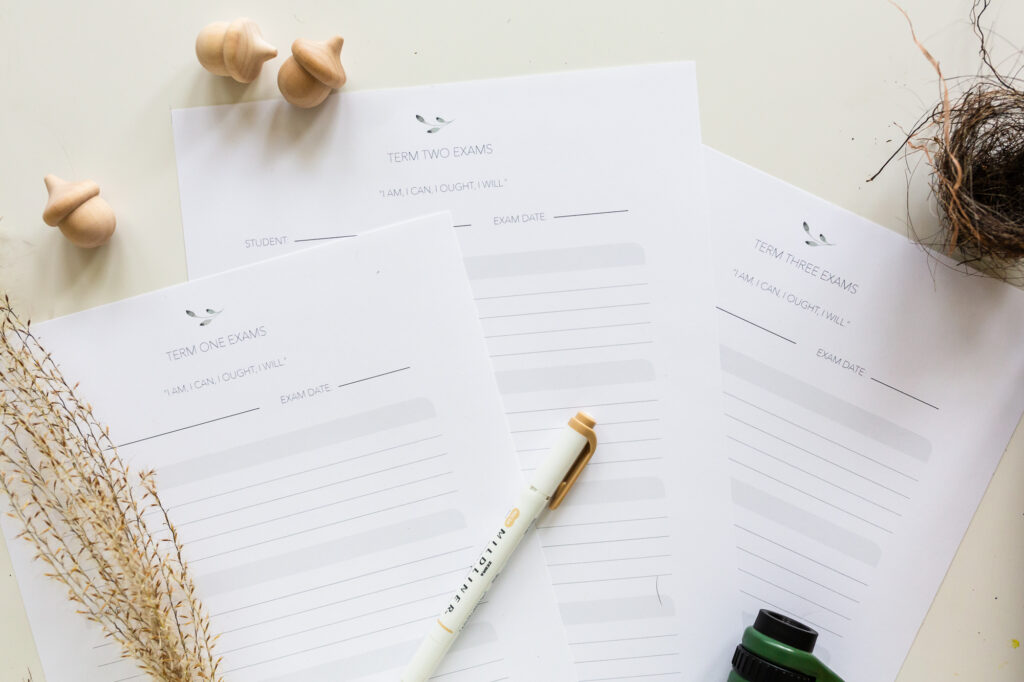
Toward the end of the term, I sit down to write out the questions. Using both AO and ADE as guides, I write the appropriate number of questions for each subject using their suggested phrasing. I like to give options for Mr. Six to choose from when possible, such as, “Either tell me the story of what happened when God asked Abraham to sacrifice Isaac OR the story of how Jacob stole Esau’s blessing from their father Isaac.” Or, “Choose your favorite Van Gogh painting and describe it to me in detail.”
I also like to write questions that I think Mr. Six has the best chance of being able to answer confidently. One of the reasons I love Charlotte Mason’s approach to exams is because they’re never meant to make a child feel foolish or point out all of his weaknesses and faults.
Instead, exams in a Charlotte Mason homeschool are meant to encourage and build up the student, giving him a chance to shine. And our experience with exams last terms did just that. Mr. Six was SO PROUD of himself for being able to answer the questions and narrate stories he hadn’t heard in weeks! And I was blown away by the detail of what he remembered.
Second, I administer each subject’s exam questions according to our normal weekly school schedule.
Again, I follow A Delectable Education’s advice here and give the history questions, for example, during our two history slots in our weekly schedule. And I give math questions during our normal math time, etc. This keeps our normal rhythm and routine, and I think helps Mr. Six’s brain naturally switch gears to the next subject he’s used to.
The other thing this does is help us not overload ourselves. Instead of reading literature for 20 minutes on Monday morning, we’ll simply narrate one story we’ve read this term. Then we move on to the next subject.
Otherwise the temptation would be to cram the whole week’s worth of exams into just a few days, because not every question takes very long at this age. And then we could have a few extra days for break. But the reality is, it’s taxing on our kiddos’ minds to think back to what they’ve learned and then synthesize it into either an oral or written narration.
So following our normal weekly school schedule is perfect and helps us have a well-balanced exam week.
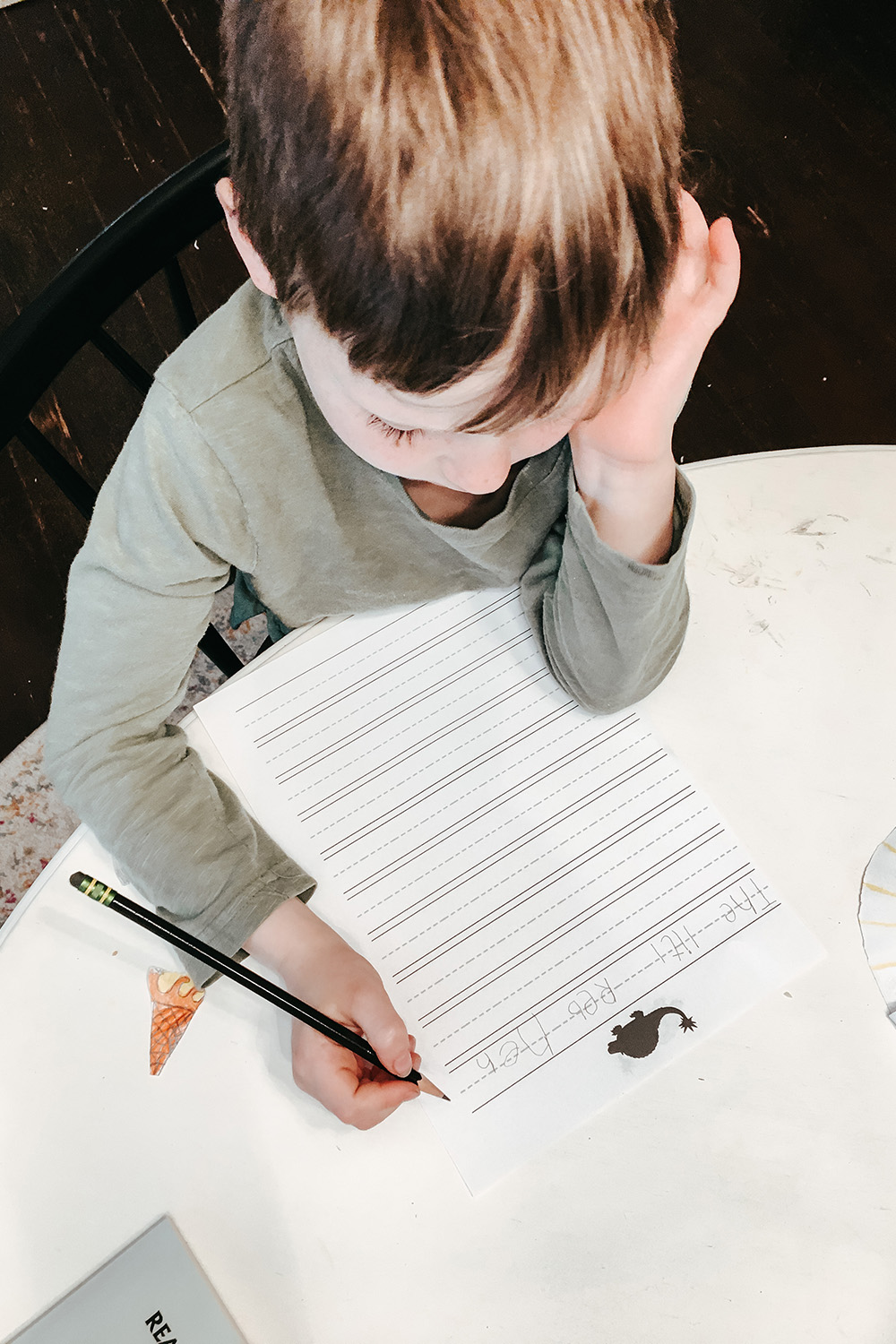
Third, to formalize exams a bit and set them apart from normal schooling, I ask Mr. Six to stand in front of me to answer the questions and narrate the stories.
I don’t think I read or heard this anywhere, but I decided to make our exams feel different – a bit more formal – than our normal school days. I wanted to set them apart. So instead of us just cuddling on the couch and narrating literature or history, I have Mr. Six stand in front of me to “present” his narration instead.
This gives him a bit of practice speaking more formally, and it seems to make him really think about his answers and words carefully. When we did this last time, he looked slightly nervous, which was adorable. He did a fantastic job, though, so I think this exam tradition will stick for us.
Fourth, I type the answers he gives, word-for-word, as he answers.
I think there’s actually a recommendation against writing everything our students say down during exams. However, I really wanted a record of his answers for a number of reasons.
First, we’ll be able to look back on them over the years and see his progress. I’ve always loved going back through the worksheets and stories I wrote when I was in early elementary. They’re meaningful and wonderful keepsakes.
Second, when Blaise gets home from work, I can show him how well Mr. Six did on his exams. It’s a source of pride for Mr. Six and keeps Blaise in the loop of our homeschool.
Finally, as a former special education teacher and complete Type A person, I’m a record-keeper. There’s value in having these records for years to come, even if I’m the only one who ever looks at them in the future.
I plan to have an exam binder for each child, where I’ll keep every single exam throughout their school careers. My plan is to make it more formal as they get older, adding rubrics and such so they have some graded work to show. Again, that’s not a CM recommendation for the early years, but it’s me adding a personal twist to our Charlotte Mason homeschool.
Fifth, at the end of the week, we have a special dinner to celebrate the end of the term and the successful completion of exams!
Last term, we had just finished our study of Native Americans before exam week, so we cooked a tradition Cherokee soup called Kanuchi. It was a lot of fun making the soup, talking about how the Native Americans might have cooked it long before white men arrived on the continent, and then enjoying it as a family.
This term, we’ve just finished our study of Vikings, so we’ll cook a traditional Norse dish as our exam week finale. I haven’t decided what just yet, but I found this website full of what looks like amazing Viking recipes.
Because studying history well is such an important part of a Charlotte Mason education, I really like using this big celebration dinner as a way to incorporate our history studies, too. It gives my kids (and me) a taste of other cultures – past and present – and makes for a memorable way to finish the term.
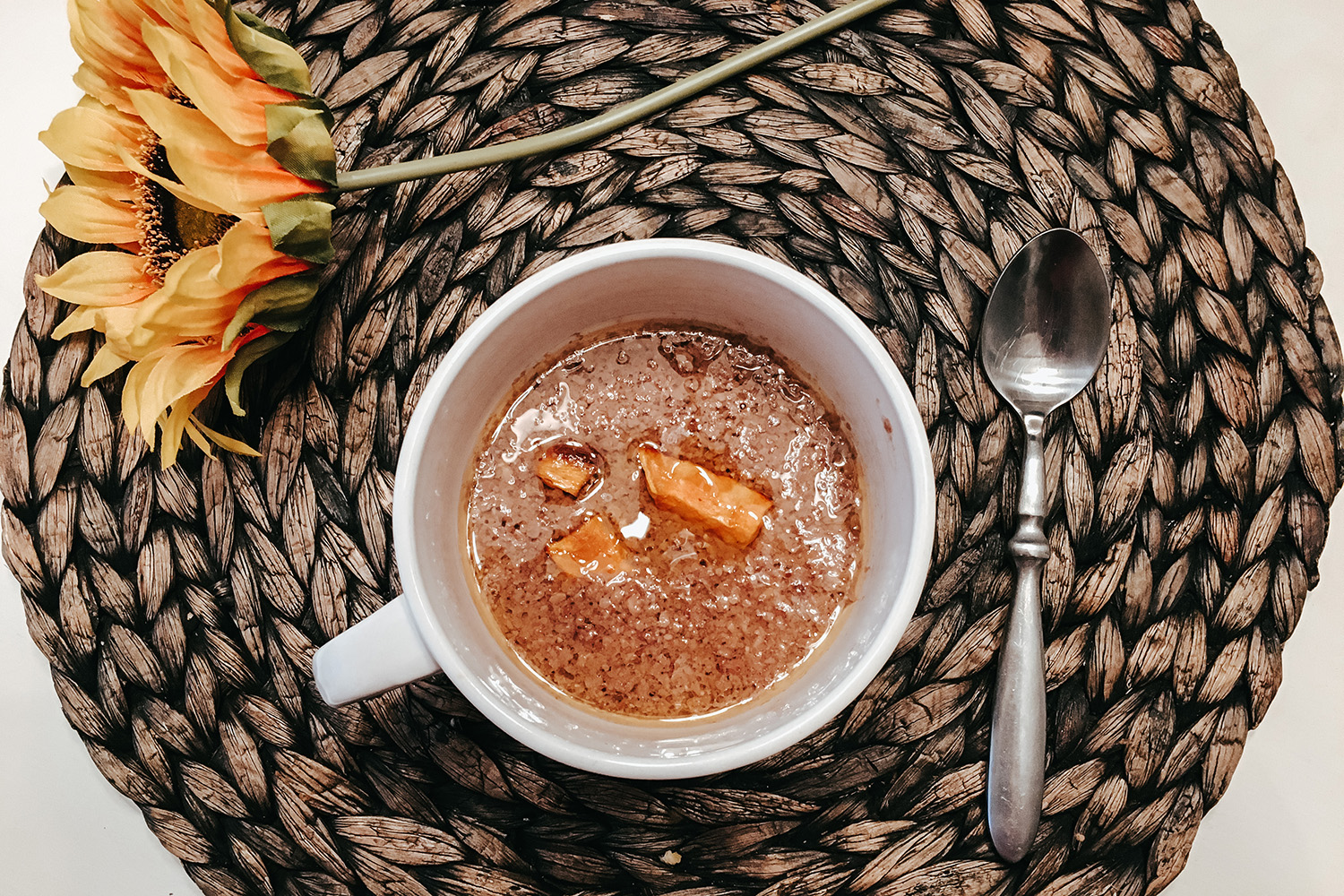
I’D LOVE TO HEAR FROM YOU! DO YOU DO EXAMS IN YOUR HOMESCHOOL?
If you do, are they a formal event? Do you use any kind of formal, standardized exams, or more informal assessments of your students’ progress?
And if you’re a Charlotte Mason homeschooler, have you made exams a regular part of your yearly schedule yet? What’s holding you back if you haven’t?
